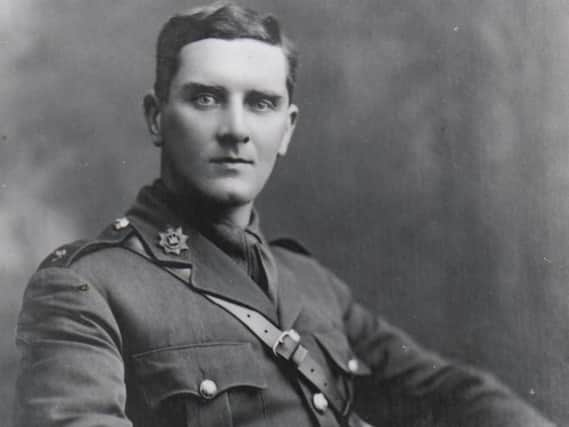Celebrating the life and talent of Harrogate's lost musical genius


If the question were to be put to Harrogate people as to the past citizens who merited the description “great”, which names would be mentioned?
I suppose among suggestions, the names of William Powell Frith, Robert Atkinson Fox and Samson Fox would be pre-eminent - the former because of his internationally acknowledged brilliance as a painter, the latter because of his internationally acclaimed genius as inventor and philanthropist.
Advertisement
Hide AdAdvertisement
Hide AdTo these names, were I to be asked, I would add the name of Ernest Bristow Farrar, once the bright hope of English music, but whose death on the western front deprived the world of so much beauty.
The deaths of Rupert Brook and Wilfrid Owen are well known, but the current state of our educational system means that fewer students learn of the loss to English music of the death of George Butterworth, and still fewer of Butterworth’s colleague, Farrar.
Ernest Bristow Farrar was born on 7th July 1885 in Lewisham, and grew up in Yorkshire, where his father was Vicar of Micklefield.
Educated at Leeds Grammar School and Durham University, he was awarded a scholarship in 1905 at the Royal College of Music, the construction of which had been financed by Harrogate’s Mayor, Samson Fox.
Advertisement
Hide AdAdvertisement
Hide AdAfter graduation, he became an organist at Dresden, before becoming choirmaster and organist in 1910 at St Hilda’s Church, South Shields.
Farrar moved to Harrogate in 1912, when he became organist at Christ Church, residing at 15 Hollins Road, where he also taught pupils such as the youthful Gerald Finzi.
Farrar joined the Grenadier Guards in August 1916 and underwent two years of training.
His understanding and sympathy for fellow servicemen inspired his orchestral “Heroic Elegy”, which was dedicated to Soldiers and premiered at Harrogate’s Kursaal on 3rd July, 1918.
It was the last music he was to ever hear.
Advertisement
Hide AdAdvertisement
Hide AdOn 6th September, 1918 Farrar was sent to the western front after having accepted a post as a Commissioned Officer on Vaughan Williams’ recommendation.
On 18th September, with the rank of Second Lieutenant in the Third Battalion of the Devonshire Regiment, Farrar led his men into battle at Epehy Ronssoy, where he was killed by machine gun fire.
He had been at the front just two days.
Described by his friend JB Priestley as “a representative of one of the finest types of humanity...”, Farrar died the same year as his eminent colleague, Sir Charles Hubert Parry, who at Samson Fox’s behest had opened the Kursaal back in 1903.
It is therefore highly appropriate that the Trustees of the Royal Hall have arranged that a special commemorative concert will be given in the Royal Hall on Thursday 15th November to mark the centenary of the deaths of both Farrar and Parry, and that Edward Fox, Samson’s great grandson, will introduce the programme which will feature music by both composers, as well as music by Finzi, who lived for a time in Harrogate when he was Farrar’s pupil.
Advertisement
Hide AdAdvertisement
Hide AdArtists include Harrogate Choral Society under Dr Andrew Padmore, the Amici Orchestra, the Chapel Choir of Exeter College, Oxford under James A Short, and soloist Keely Jones.
It is to be hoped that if ever Harrogate’s music lovers have supported a concert in the town they will support the poignant event that has been planned to honour the memory of one of the town’s greatest sons, as well as to mark the centenary of the end of the international calamity that was the great war.
Although Parry died with his life’s work complete. Farrar, like his fellow composer George Butterworth, and the war poets Rupert Brook and Wilfrid Owen died before their time, with so much still to give.